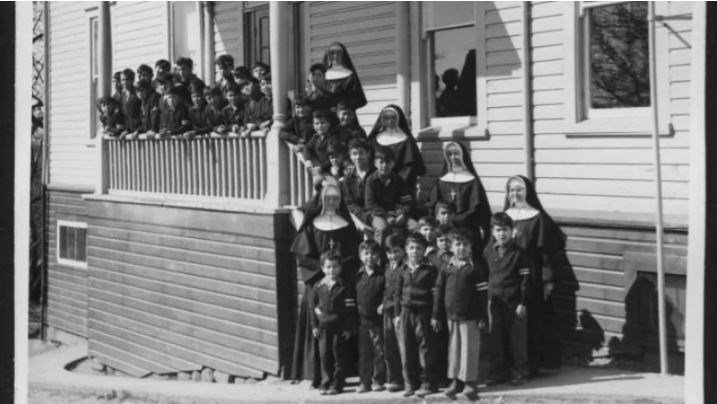“What’s going to happen after the apology?”
That’s what Squamish Nation Elder and Catholic Church Deacon Rennie Nahanee wonders when he thinks about the possible papal visit to Canada.
“I'm very happy that the Pope is coming. It would be good if he apologizes on behalf of all the Catholic organizations that taught in the residential schools,” Nahanee said. “But just as important, is to know what's going to happen after the apology, or whatever speech he is going to make. Will there be reconciliation? And will there be healing?”
Announced at the end of last month, the Vatican said Pope Francis had accepted an invitation by Canada’s Bishops to visit Canada “on a pilgrimage of healing and reconciliation.”
Although dates for the Pope’s visit to Canada have yet to be confirmed, in a release the Canadian Bishops said that in anticipation of the visit, survivors, Elders, Knowledge Keepers and youth would travel to the Vatican in December to meet with Pope Francis about his trip to Canada.
The confirmation of a papal visit comes as Indigenous leaders around the country have expressed frustration over the Pope’s lack of apology for the Catholic Church's role in residential schools.
In June, Pope Francis expressed his pain over the discovery of the remains of 215 Indigenous students at the Kamloops Indian Residential School but didn’t offer an apology sought by Indigenous leaders.
Nahanee believes the Pope’s outreach to Indigenous people is a “huge thing,” and the visit will instigate non-Indigenous Catholics to start learning about the history and relationship between Indigenous people and the church.
“I'm kind of hoping that when Pope Francis comes, that will be the ‘Big Bang,’” he said. “That more movement will take place. That Catholics will realize that they have a lot to learn regarding their brothers and sisters of Indigenous descent, here in Canada. They need to learn. Many native people are of that faith, including myself.
“We're like the bear that people poke a stick at. That bear is starting to wake up, tired of getting poked and pushed around. Time to start taking some action on its own,” he said.
Nahanee doesn’t blame Catholics themselves for not understanding the history of Indigenous people, however, and made note of the role the education system and federal governments have played in not teaching the colonial history of Canada.
“We were not part of that curriculum, of Canada growing as a country. Then the Pope, when he's going to come, I believe that he will sway peoples thinking that there is something to the story about Indigenous people, after all.”
Understanding the ways in which the government of the days wanted to take the Indian out of the child, and forcibly removed culture, language, and spirituality, Nahanee wants the Pope to offer the same thing he did in 2019 to the Amazonian Synod.
“That Indigenous people have their own mass in their language, in their culture. Everybody else in the world is doing that, except Indigenous people,” he said. “And for too long now, the church says ‘Welcome to church, but leave your drums at the door.’”
Nahanee said Pope Francis needs to remind Catholics they need to be “more Christian.”
“What does it mean to be a follower of Christ? Who is your neighbour? It's the Native people that are your neighbours. And how can we undo things that were done a long time ago?”
One way the church can begin to make amends, Nahanee said, is by actively investing in language revitalization programs.
“It's sorely needed. Because language for Indigenous people, it has place names, it has places where people hunted, places where people fished, places where sacred ceremonies took place,” he said.
“If the church is to help with that language, I think that's the most basic thing of all.”
Support and assistance for those who are affected by the residential school system can be found at Indian Residential School Survivors Society toll-free 1 (800) 721-0066 or 24-hr Crisis Line 1 (866) 925-4419.
Charlie Carey is the North Shore News’ Indigenous and civic affairs reporter. This reporting beat is made possible by the .




